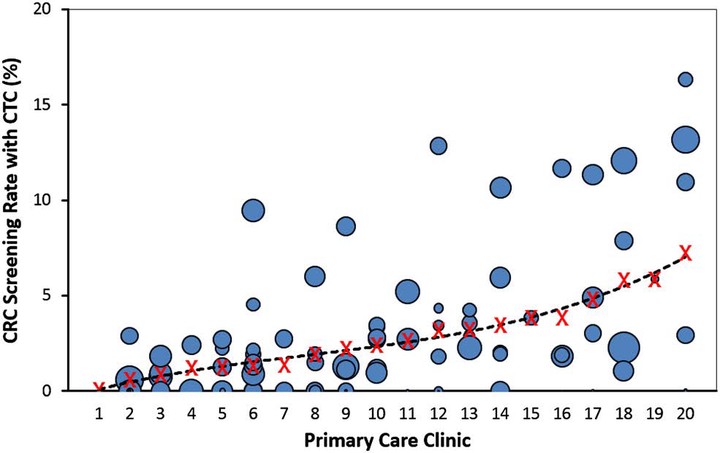Predictors of primary care provider adoption of CT colonography for colorectal cancer screening

Abstract
PURPOSE: To examine factors influencing primary care provider (PCP) adoption of CT colonography (CTC) for colorectal cancer (CRC) screening. MATERIALS AND METHODS: We performed a retrospective cohort study linking electronic health record (EHR) data with PCP survey data. Patients were eligible for inclusion if they were not up-to-date with CRC screening and if they had CTC insurance coverage in the year prior to survey administration. PCPs were included if they had at least one eligible patient in their panel and completed the survey (final sample N = 95 PCPs; N = 6245 patients). Survey data included perceptions of CRC screening by any method, as well as CTC specifically. Multivariate logistic regression estimated odds ratios and 95% confidence intervals for PCP and clinic predictors of CRC screening by any method and screening with CTC. RESULTS: Substantial variation in CTC use was seen among PCPs and clinics (range 0-16% of CRC screening). Predictors of higher CTC use were PCP perceptions that CTC is effective in reducing CRC mortality, higher number of perceived advantages to screening with CTC, and Internal Medicine specialty. Factors not associated with CTC use were PCP perceptions of less organizational capacity to meet demand for colonoscopy, number of perceived disadvantages to screening with CTC, PCP age and gender, and clinic factors. CONCLUSION: Significant variation in PCP adoption of CTC exists. PCP perceptions of CTC and specialty practice were related to CTC adoption. Strategies to increase PCP adoption of CTC for CRC screening should include emphasis on the effectiveness and advantages of CTC.